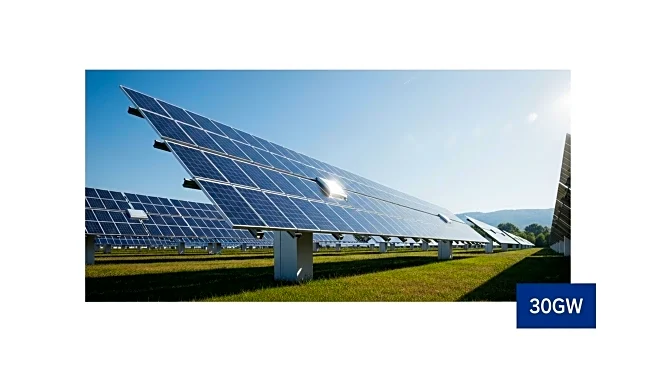What's Happening?
A recent study has concluded that the European Union's target to manufacture 30GW of solar modules by 2030 is achievable with the right policies. The study outlines three scenarios for achieving this goal, including a fully integrated EU supply chain and mixed production strategies involving China and Southeast Asia. Currently, the EU's manufacturing capacity is below 10GW, with China supplying the majority of PV components. The study emphasizes the need for swift action to prevent the loss of industrial capabilities and highlights the potential for job creation and economic growth within the EU.
Why It's Important?
Achieving the 30GW solar module manufacturing target is crucial for the EU's energy independence and sustainability goals. It would reduce reliance on imports, particularly from China, and strengthen the EU's position in the global renewable energy market. The initiative promises significant economic benefits, including job creation and technological innovation. However, the cost of EU-produced modules remains higher than those from China, posing a challenge. Addressing this cost disparity through policy interventions could enhance competitiveness and support the EU's transition to a greener economy.
What's Next?
The EU and its member states must implement supportive policies to facilitate the growth of solar manufacturing. This includes addressing cost disparities and providing incentives for investment in domestic production. The study suggests a mix of capital and operational expenditure schemes to reduce costs and encourage manufacturing. As the EU works towards its 2030 target, collaboration with industry stakeholders and policymakers will be essential. The success of this initiative could influence global renewable energy strategies and set a precedent for sustainable manufacturing practices.












